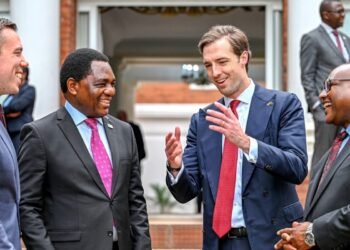Govt urged to increase budget towards wash
By George Zulu
THE Zambia NGO WASH Forum has urged the government to increase the national budget allocation for the Water, Sanitation, and Hygiene (WASH) sector.
Forum Coordinator Bubala Muyovwe-Mumba said the country was in a critical need to address aging infrastructure, public health threats, and the impacts of climate change.
Muyovwe-Mumba appealed during a learning event held in Kafue District, under the Water Voices United project.
“Frequent outbreaks of cholera and typhoid are a clear indication of underinvestment in this sector,” she said.
She said less than half the population in peri-urban areas had access to basic sanitation.
Muyovwe-Mumba highlighted the severe strain on Zambia’s water utilities, noting that much of the existing infrastructure dates back to the 1950s and 60s and was ill-equipped to serve today’s urban populations.
She said commercial water utilities were grappling with outdated tariff structures that had not been revised since 2020.
“…even as operational costs, including soaring energy and chemical input expenses, have increased dramatically. This financial shortfall prevents essential maintenance and expansion of services,” she said.
Muyovwe-Mumba observed that climate change, with its erratic rainfall and diminishing water sources, posed a significant threat to national water security.
She urged policymakers to align with international commitments, noting that while Zambia was a signatory to the SADC and eThekwini declarations, which recommend a minimum of 5 per cent of the national budget be allocated to WASH, the recent budgets had consistently fallen below 2 per cent.
“We are framing this as an investment in public health, economic growth, and human dignity,” she said.
The event in Kafue included a tour of the Iolanda Water Treatment Plants, with members of the Parliamentary Caucus on Water, Sanitation and Hygiene (PC-WASH) and the Committee on Energy, Water Development and Tourism in attendance.
The engagement was one of many facilitated by the Water Voices United project, a four-year initiative co-funded by the European Union and Danish People’s Aid and spearheaded by SNV in partnership with the NGO WASH Forum.
Meanwhile, Parliamentary Caucus on Water, Sanitation and Hygiene (PC-WASH) acting chairperson Binwell Mpundu said water was a critical issue in many parts of the country.
And Lusaka Water Supply and Sanitation Company (LWSC) managing director Engineer Jilly Chiyombwe explained the financial challenges that directly compromise service delivery.
Chiyombwe noted that despite rising operational costs, driven by high electricity tariffs, imported chemical inputs, and fuel costs for generators during loadshedding, water tariffs had remained largely unchanged since 2020.

























